For people concerned about blood sugar spikes, simply eating can feel like trying to defuse a bomb: Make the wrong food choice and serum glucose can go boom.
And they’re not just diabetics: High glucose levels, observed even in “healthy” people, can cause serious issues and cost you insulin sensitivity over time. The reasons for this aren’t fully understood, but they can be related to stress, diet, problems sleeping, inactivity, and more.
When you know which foods send blood sugar soaring, however, it’s easier to minimize glucose spikes. This article will explore five categories of foods that should be consumed in moderation — if at all — and how they impact blood sugar.
What Causes Blood Sugar Spikes?
Spikes in blood glucose result primarily from the consumption of carbohydrates, though slight changes in blood sugar can come from eating almost anything.
When carbs enter the digestive system, they’re broken down and their sugar is absorbed, triggering the release of insulin, which then tells that sugar — now in the form of glucose — where to go. A certain amount of this post-meal is normal.
But too much sugar can trigger too much insulin, which over time can stop answering sugar’s calls, loading the bloodstream with more glucose than the body can metabolize. The result can be weight gain, chronic fatigue, health issues, and more.
Cortisol and blood sugar
Blood sugar spikes can also result from stress, which triggers the release of cortisol, a hormone whose job is to deploy glucose to power you through tense situations.
Constant stress can place the body in a constant state of cortisol release, which can mean a constant state of elevated blood glucose. Dietary strategies are central to not only helping minimize blood sugar spikes, but also helping lower cortisol naturally.
5 Foods That Increase Blood Sugar
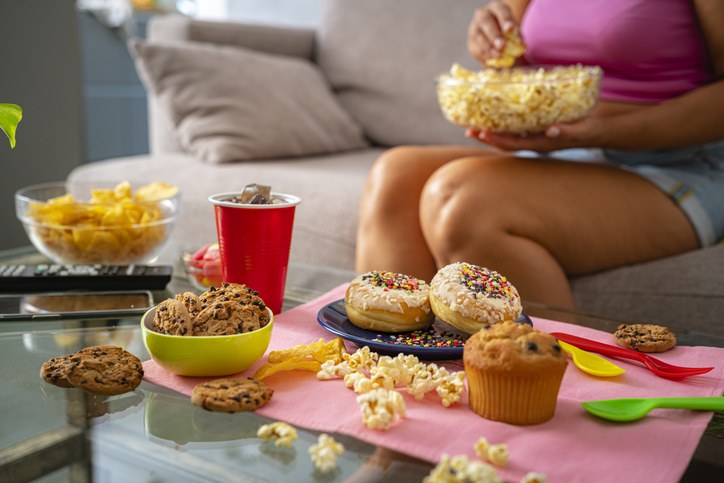
As important as knowing what to eat to maintain healthy blood sugar is what to limit or avoid. Helping us make those choices is the glycemic index, a scoring system for how likely different foods are to raise serum (blood) glucose.
The glycemic index ranks foods on a scale of 0 to 100, with pure glucose clocking in at 100. A GI score of 55 or lower is considered low and, therefore, unlikely to seriously spike blood sugar. Here are the five foods likeliest to exceed that threshold.
1. Caloric sweeteners
Added sugar goes by dozens of names and, by its very nature, will have an outsize effect on blood glucose. Its most popular forms include:
- Syrup
- Jelly
- Honey
- Caramel
- Molasses
- Cane juice
- Raw, brown, or granulated sugar
The sugar in most nutritive sweeteners consists of glucose, fructose, or a combination of both. Complicating matters, glucose is the highest-scoring food on the glycemic index, while fructose scarcely spikes blood sugar at all. But getting too much of either can be detrimental for your health.
Does honey spike blood sugar?
There’s debate about the impact of honey on blood sugar, with some studies finding it may have a moderating effect, and others finding the evidence inconclusive. The National Institutes of Health scores honey 70 on the glycemic index, so the best course of action — as always — is to practice moderation in consuming honey or any other caloric sweetener.
Does maple syrup spike blood sugar?
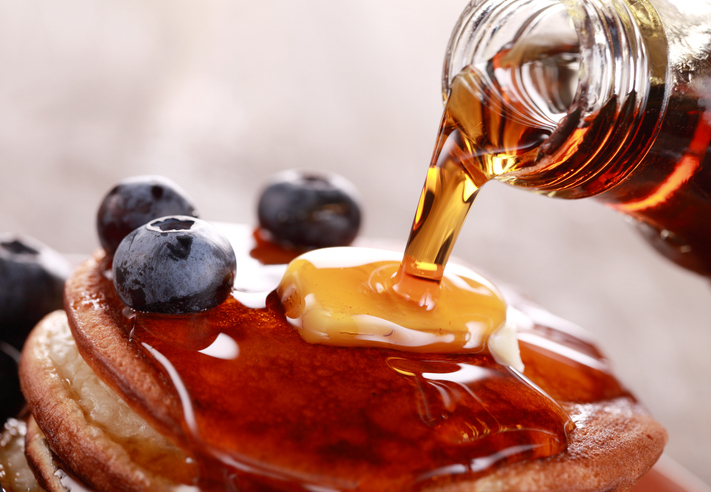
Due to its fructose content, pure Canadian maple syrup sneaks in just under the threshold for low-glycemic foods at 54. It’s calorically dense, though, so a little can go a long way toward lifting blood sugar levels. “Maple-flavored” syrup, on the other hand, is typically processed using corn syrup and comes at a higher glycemic cost.
Does agave spike blood sugar?
Consisting mostly of fructose, the sugar in agave syrup (or nectar) doesn’t spike blood glucose as readily in the short term as many other caloric sweeteners. However, some believe it’s actually more detrimental than plain sugar overall.
That’s because fructose, unlike glucose, is metabolized in the liver, which can get overloaded with time. When that happens, the liver converts excess fructose into fat, potentially leading to more chronic increases in blood sugar. This is why it’s important to get your fruit sugar from whole fruit, which contains fiber that binds to fructose, slowing its absorption.
Does coconut sugar spike blood sugar?
Coconut sugar, which is derived from the sap of the coconut palm as opposed to the fruit itself, is touted as a better alternative to table sugar. That’s due to its substantial quantity of inulin, a type of soluble fiber that makes acute blood sugar spikes less likely by slowing absorption. But at the end of the day, coconut sugar is still sugar and should be used sparingly.
Does stevia spike blood sugar?
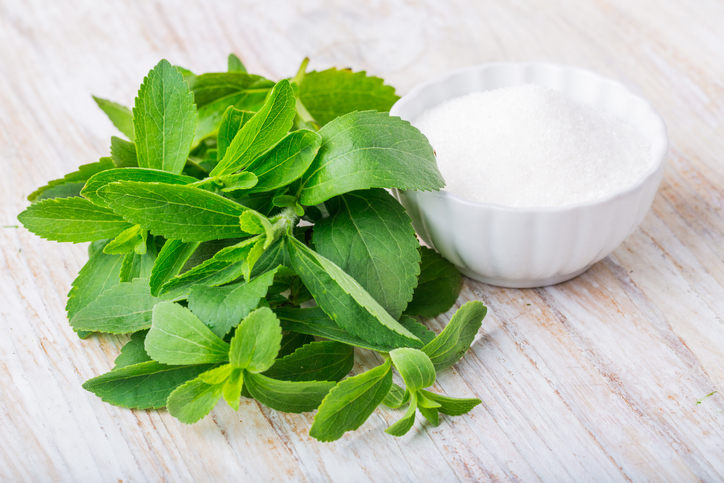
Pure stevia is a natural sugar substitute containing compounds that aren’t absorbed by the body, so consuming it alone does not affect blood sugar. That said, products containing stevia may also have additives that can raise serum glucose, so it’s important to check nutrition labels for added sugars.
Does monk fruit spike blood sugar?
Monk fruit, also known as luo han guo, isn’t recognized as a carbohydrate by the body and, as a result, doesn’t spike blood sugar. As with stevia, it’s important to make sure monk fruit isn’t eclipsed on the ingredient list by other nutritive sweeteners.
Does sucralose spike blood sugar?
Also known by the commercial name Splenda, the sugar substitute sucralose hasn’t been found to elevate blood sugar per se. However, studies suggest it may impair the glycemic response via impacts on the microbiome, and warrants further research.
Does aspartame spike blood sugar?
Given a potency about 200 times sweeter than sugar, aspartame is used in such small amounts it doesn’t directly contribute much to calorie or blood sugar counts. However, intake of this sugar substitute may be associated with increased risk of weight gain, which could ultimately impair glucose tolerance.
Does erythritol spike blood sugar?
Erythritol is a sugar alcohol that contains no calories and, as such, has no impact on blood sugar. The drawback with most sugar alcohols is that they bypass the digestive system and end up being fermented in the colon, often causing gas and bloating. Erythritol, however, is associated with fewer of these complications.
2. Sweetened beverages
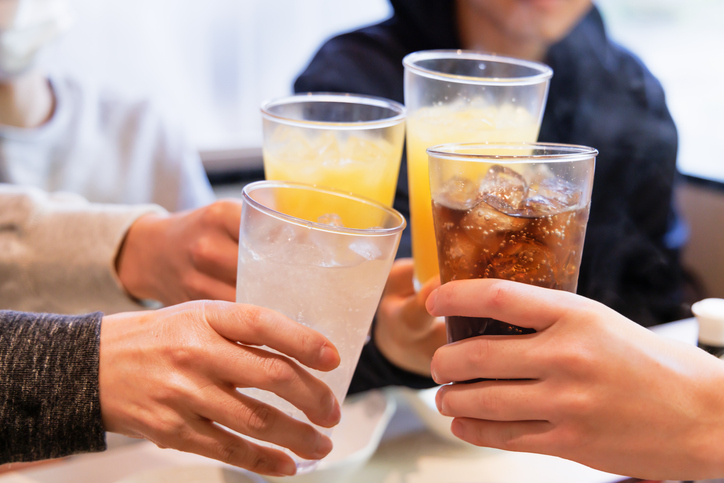
Generally, it’s a good rule to avoid drinking your calories. Sugary beverages account for nearly 10 percent of the average American’s daily calorie intake and have little nutritional value. Even worse, their consumption in large amounts can signifcantly increase blood glucose and insulin concentrations.
- Soda
- Juice
- Coffee drinks
- Energy drinks
Does caffeine spike blood sugar?
Research on the impact of caffeine on blood sugar is all over the place. Some suggests that 200 mg (about two cups of coffee, or half the recommended daily limit) is the threshold at which insulin sensitivity can be impaired, while other evidence indicates no significant effect of caffeine on insulin sensitivity at all.
Still, other research splits the difference, concluding that consumption of caffeinated coffee may impair the insulin response in the short term while improving it in the long term. The best way to see to your glycemic health is to moderate caffeine consumption and avoid the added sweeteners that turn a harmless cup of coffee into a decadent aqueous dessert.
3. Ultra-processed foods
Besides the unhealthy fats, preservatives, artificial ingredients, and general nutrient sparsity common to packaged foods is the sugar that’s routinely added during their multiple rounds of processing. Ultra-processed foods are typically cheap, convenient, and tragic for blood sugar and overall health. They include:
- Sweet or savory packaged snacks and desserts
- Ice cream
- Candy
- Hot dogs, bacon, sausage, and deli meats
- Instant soup mixes
- Many ready-to-heat products like pizza and chicken nuggets
Research has found the more a diet consists of ultra-processed foods, the higher the resultant blood glucose level is likely to be. In fact, a study published by the American Diabetes Association concluded that consumption of ultra-processed foods is associated with a greater risk of type 2 diabetes.
4. White foods
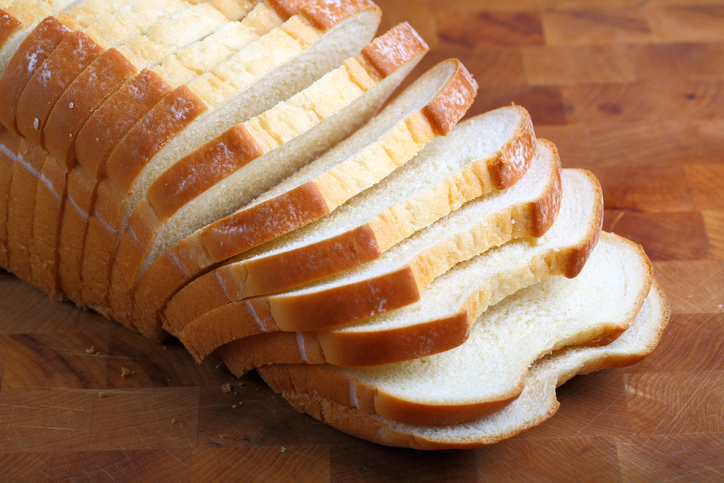
A specific form of processing in which once-whole carbohydrates are refined into the most polished, marketable, and nutritionally bankrupt versions of themselves, food whitening typically turns even the best carbs “bad.” These kinds of refined carbs include:
- Enriched white flour
- White bread
- White rice
- Cake and pastries
- Pasta
- Sweetened breakfast cereal
- Saltines, oyster crackers
During the process of refinement, these foods lose most of their fiber content and often undergo the addition of sugar, posing a one-two punch for those looking to manage blood sugar spikes. That makes it important to combine them with foods that are high in protein and/or fiber (more on that below).
5. Alcohol
The effects of alcohol on blood sugar are complicated. Easier to keep in mind is the type of alcohol you consume and the accompanying carbohydrates it contains.
Spirits like Tequila and whiskey have no carbs at all, but that can change dramatically with the addition of sugary juice, soda, or margarita mix. Meanwhile, craft beer can contain twice the alcohol and calories of light beer, and should be consumed with caution if you’re concerned about serum glucose.
Most wine has a relatively low carb count, but all alcohol has the potential to reduce the liver’s ability to regulate blood sugar and shouldn’t be consumed on an empty stomach.
Foods That Help Minimize Blood Sugar Spikes
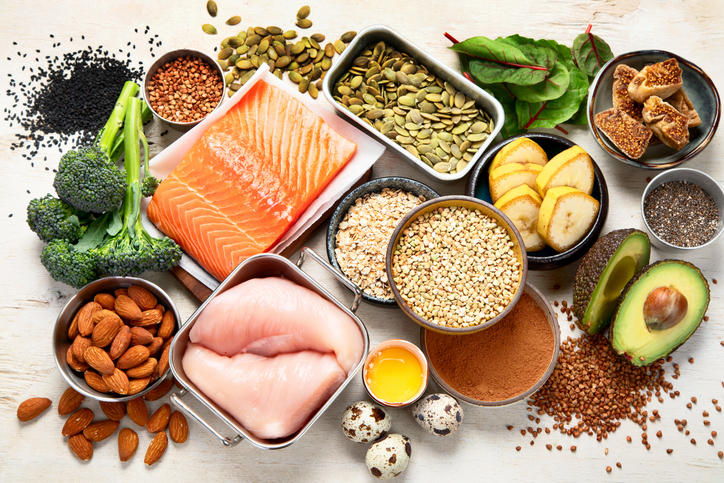
As part of a holistic plan to reduce blood sugar spikes, there are changes you can make to your diet to help keep serum glucose levels within a healthy range. If you find yourself consuming any of the above foods, combine them with the following to minimize their impact on blood sugar.
Fiber
Incorporating fiber-rich, plant-based foods can help slow the absorption of glucose into the bloodstream, leading to more gradual increases in blood sugar.
- Whole grains
- Legumes
- Non-starchy vegetables
Protein
Adding lean proteins can further moderate blood sugar fluctuations by promoting fullness and reducing the likelihood of overeating.
- Fish
- Turkey
- Chicken
- Plain Greek yogurt
Healthy fats
Less healthy lipids like saturated and trans fats can work against efforts to support normal blood sugar, but heart-healthy monounsaturated and polyunsaturated fatty acids can further slow the absorption of sugar after eating carbohydrates.
- Fatty fish
- Avocado
- Nuts and seeds
- Coconut oil and olive oil
- Dark chocolate (70% cacao or higher)
The post 5 Foods Most Likely to Spike Blood Sugar appeared first on BODi.

0 Comments